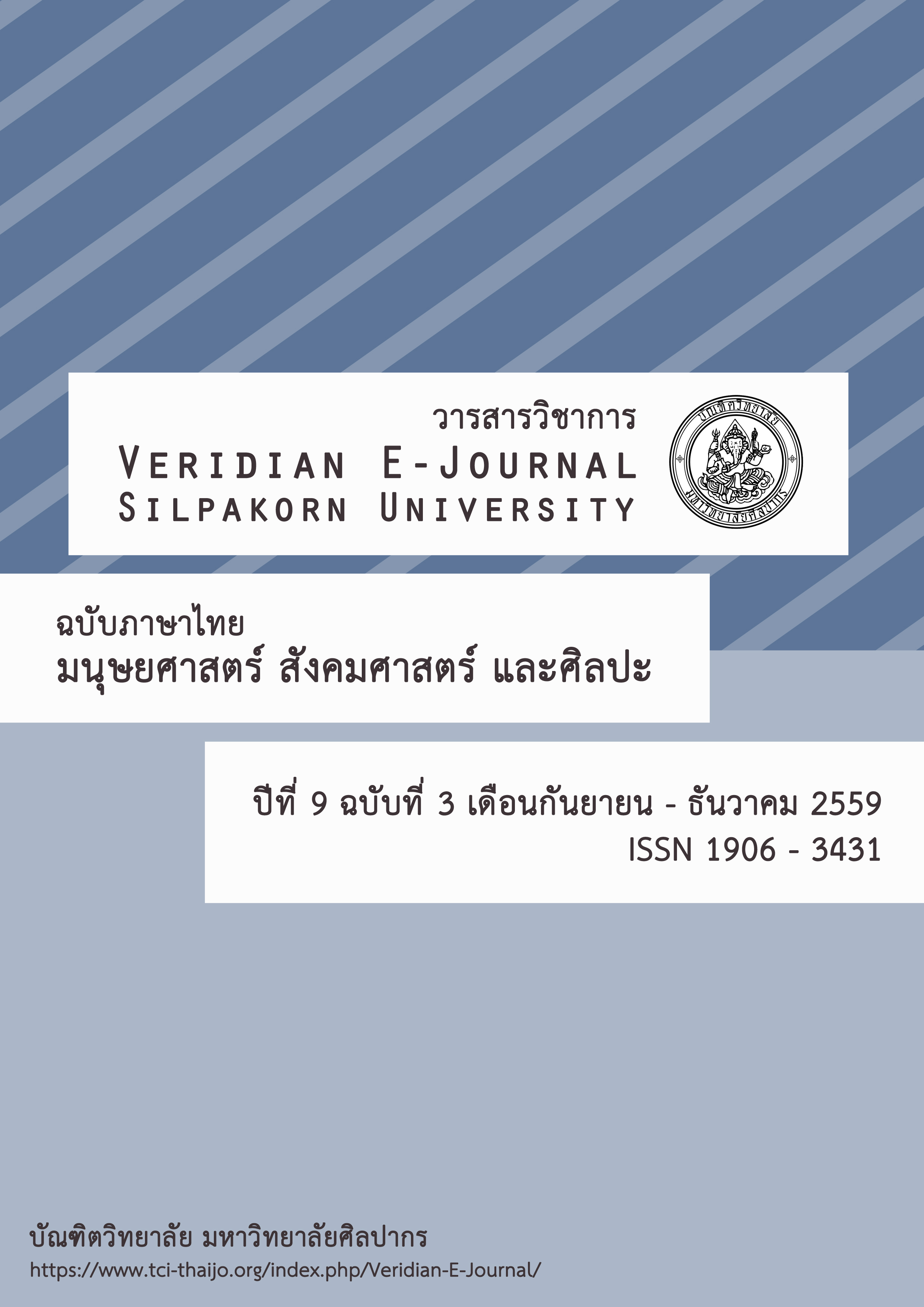คุณภาพการจัดการศึกษาปฐมวัย : ปัจจัยเชิงสาเหตุ
Main Article Content
Abstract
การศึกษาปฐมวัยเป็นการจัดการศึกษาขั้นพื้นฐานมีจุดมุ่งหมายเพื่อพัฒนาเด็กปฐมวัยให้มีความพร้อมในด้านต่างๆซึ่งจะมีผลกระทบต่อการเจริญเติบโตและบุคลิกภาพในอนาคต คุณภาพการจัดการศึกษาปฐมวัยจึงเป็นความสามารถในการพัฒนาคุณภาพการศึกษาให้มีประสิทธิภาพ ภายใต้ปรัชญาหรือความมุ่งมั่นในการพัฒนาคุณภาพผู้เรียนให้มีคุณลักษณะที่พึงประสงค์ โดยมีองค์ประกอบที่สำคัญประกอบด้วย 1) ด้านคุณภาพของผู้เรียน 2) ด้านคุณภาพประสิทธิภาพในการบริหารงาน 3) ด้านคุณภาพการเป็นองค์การแห่งการเรียนรู้ 4) ด้านคุณภาพการมีส่วนร่วมของผู้ปกครองและชุมชน และ5) ด้านความพึงพอใจในการทำงาน ส่วนปัจจัยเชิงสาเหตุที่ส่งผลต่อคุณภาพการจัดการศึกษาปฐมวัย ประกอบด้วย 1) ภาวะผู้นำทางวิชาการของผู้บริหาร วัดได้จาก การสื่อสารแนวทางการปฏิบัติงานให้เข้าใจตรงกัน การกำกับติดตามและประเมินผลการเรียนการสอน การส่งเสริมพัฒนาวิชาชีพ และการเป็นผู้นำการเปลี่ยนแปลง 2) สมรรถนะขององค์การ วัดได้จาก การกำหนดวิสัยทัศน์ พันธกิจและยุทธศาสตร์ ความรู้ความสามารถของบุคลากร การจัดโครงสร้างองค์กรที่เหมาะสม การสรรหาและจัดทรัพยากรการเรียนรู้ และการใช้เทคโนโลยีสารสนเทศในการบริหาร 3) บรรยากาศของโรงเรียน วัดได้จาก บรรยากาศเชิงบวกในโรงเรียน บุคลากรตั้งความคาดหวังเกี่ยวกับการจัดการศึกษาสูง การเปิดโอกาสให้ร่วมตัดสินใจ การให้ความเป็นกันเองไว้วางใจกันการจัดระบบการจูงใจ และสภาพแวดล้อมทางกายภาพ และ4) การบริหารจัดการเรียนรู้ วัดได้จาก การบริหารหลักสูตร การบริหารจัดการเรียนการสอน การบริหารการวัดผลประเมินผล และการประกันคุณภาพการศึกษา
Early childhood education is a basic education with a purpose to develop children in their early childhood in several aspects, which will affect their growth and personality in the future. Thus, the quality of early childhood education is what results in an efficient educational quality under the philosophy or determination to develop student quality with desirable characteristics. The significant components comprise of the following factors 1) student qualities; 2) administration efficiency qualities; 3) learning organization qualities; 4) participation of parents qualities and community and 5) working satisfaction. On the other hand, the causal factors affecting the quality of early childhood education are 1) academic leadership of administrators, which can be measured from goal setting and sharing, instructional monitoring, professional development and support and being a transformational leadership; 2) school competency, which can be measured from the determination of visions, missions and strategies, personnel competency, an appropriate organizational structure, recruitment learning resources and information technology; 3) school environment, which can be measured from positive atmosphere, high expectation from school personnel, cooperate decision making, relationship and trust, persuasive system and physical environment; 4) instructional administration, which can be measured from curriculum administration, teaching administration, assessment and evaluation administration and internal quality system.

